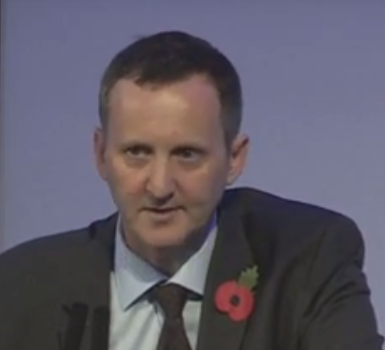Steward explains FCA's uptick in investigations
Chris Hamblin, Editor, London, 21 September 2017

At yesterday's AFME conference in London, Mark Steward, the Financial Conduct Authority's head of enforcement and market oversight, talked about the investigations that usually precede enforcement actions. He reiterated the FCA's policy of leniency towards firms that make genuine efforts to comply with the EU's updated Markets in Financial Intruments Directive (MiFID II) on time.
Steward thought that the most significant change in his regulator's behaviour in the last year had been a 75% increase in the number of investigations. He listed three factors behind this.
1. The FCA is "broadening its shoulders" - an odd term that Steward used to describe an increase in the number of things to investigate. The main thing he mentioned here was a hike in the number of investigations to do with capital market disclosure.
2. Changes engendered by the EU's Market Abuse Regulation have influenced investigation numbers because firms are reporting more data, especially in the form of STORs (suspicious transaction and order reports). Since MAR started last year, the regulator has seen a 78% increase in STORs. MiFID II, the EU's second Markets in Financial Instruments Directive, will add to the volume of data the FCA can see - or, in Steward's peculiar phrase, "enrich our view of the market." He estimated that the volume of transactions that the FCA sees per day will go up from 20 million now to 35 million after MiFID II comes into force on 3rd January.
3. In November 2015, the HBOS report was published. One part, written by Andrew Green QC, looked at the old Financial Services Authority's part in HBOS's failure, concluding that it did not embark on further investigations when it could have. This was, Steward thought, misguided in view of the public interest in the subject. There was still plenty of public interest in the HBOS débâcle in 2015, despite the fact that the Government had seen to it that seven years had passed between the disaster and the report's eventual publication. Steward, then, thought that the FCA should investigate a firm whenever it suspected that serious (i.e. not trivial or merely technical) misconduct may have occurred. He mentioned financial crime, bad reporting and market abuse as 'serious' issues. This third factor, too, has added to the increase in FCA investigations.
Irrelevantly but emphatically, Steward added that he thought that the purpose of an investigation was diagnostic and that the FCA should not go into an investigation with a view about what happened. He pointed out, again obviously, that prosecutors generally ask questions to which they know the answers because they might otherwise receive surprising and upsetting replies, whereas investigators must always do the opposite and ask open-ended questions.
Compliance Matters heard at the conference that despite the growth in the number of investigations, the FCA is not devoting any more resources to them than last year. Some delegates thought that by spreading its efforts more thinly it may be storing up problems for later.
The desire to know all
Like all regulators, the FCA is always after more information and Steward made a spectacular announcement in this regard: "We're going to collect audible data from trading venues on a cloud platform. We'll then aggregate it, which will be a logistical challenge. Our aim is to collect it from all venues daily, separating transactions by firm and the cash markets but then in other markets and then also by client too. It will enable us to assess things in real time."
In keeping with the FCA's passion for the European Union, Steward also mentioned in passing that the regulator was sharing information with European regulators every day.
MiFID II
Stephen Hanks of the FCA announced at WealthBriefing's MiFID II conference in the summer that the FCA would be lenient on firms that had problems meeting the implementation deadline as long as they were making genuine efforts to comply. Steward reiterated this.
"We intend to act proportionately. We shall not take a "strict liability" approach. We have no intention of taking enforcement action against firms for not meeting all requirements straight away if they have taken sufficient steps to meet their new obligations by the start date. [Things] will be different with firms that have made no real or genuine attempt to be ready or have deliberately flouted their obligations."
AFME is the Association for Financial Markets in Europe. Its website is at afme.eu and this was its first conference, with an attendance of 202 compliance officers.












